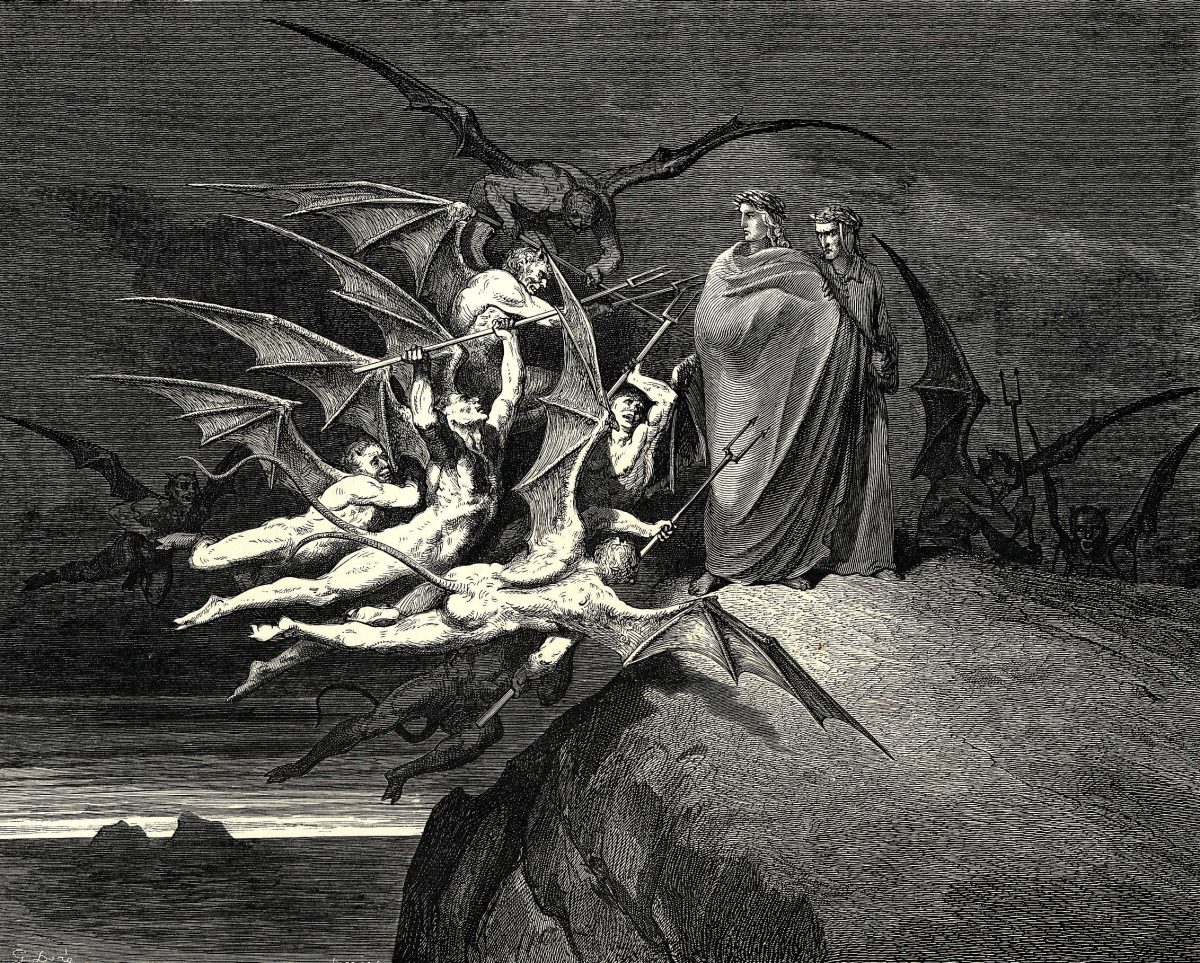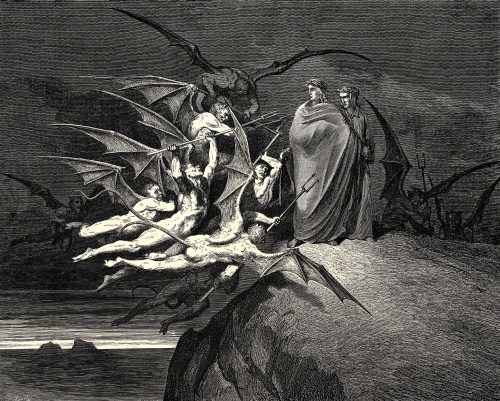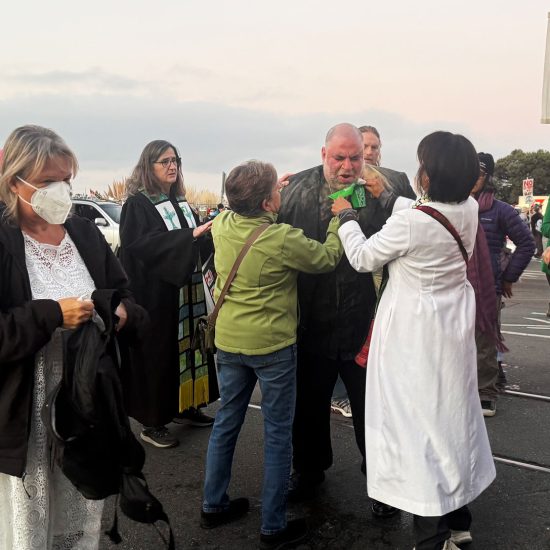
MAGA evangelicals may not have enough votes to carry Donald Trump to the White House in 2024, but they have provided the Trump campaign with an unholy trinity of toxic tropes to make the race. Trump has become an apocalyptic preacher of doom and gloom while offering to be the nation’s savior.

Rodney Kennedy
Three tropes dominate MAGA evangelical messages: disease, disgust, and demons. With an outline resembling an evangelical sermon, Trump, the preacher, rages at every rally that America is a sick nation, MAGA evangelicals are disgusted by the immorality of liberals, and Democrats are demons.
Al Mohler says Trump is the “lesser of two evils” in the election. This speaks volumes to what Democrats are facing. Making the case for Trump being evil is a futile exercise. I have engaged MAGA folks in furious debates and when the evidence mounts against Trump, they always turn at the end to one conclusion: Trump is not as evil as Kamala Harris.
As if he were the attending physician in the ICU, Trump projects America as a nation on life support, a nation in danger of dying. Doctor Trump offers his false diagnosis: “We have a very, very sick country right now. You saw the other day with the stock market crashing. That was just the beginning.” He speaks as if he is Jesus, “This is but the beginning of the birth pangs.”
“Likewise,” he said, addressing Democrats, “only a deeply sick political party here in America would make common cause with those who sympathize with such evil and they are.”
Trump uses the disease trope on all Democrats. For example, Trump called Nancy Pelosi a “sick puppy.” ABC News has “a knowingly sick and biased agenda.” Adam Schiff is “a corrupt politician and probably a very sick man.” Bette Midler is “A washed-up psycho, a sick scammer.” Michael Wolff is a “mentally deranged author.” And Maxine Waters is “Crazy, crazy, ranting and raving.”
Referring to one’s political opponents as the carriers of disease is a particularly nasty trope. David Livingston Smith, in Less than Human, says, “Thinking sets the agenda for action and thinking of humans as less than human paves the way for atrocity. The Nazis were explicit about the status of their victims. They were Untermenschen — subhuman. It’s wrong to kill a person, but permissible to exterminate a rat. To the Nazis, all the Jews, Gypsies, and the others were rats: dangerous, disease-carrying rats.”
In Trump’s mind, all Democrats should be suffering the punishment of lepers in biblical times — a bell around their necks while crying out endlessly, “Unclean, unclean.”
Evangelicals easily identify with the trope of disease. They have cut their theological teeth on seeing the nation as a sick people. Trump sounds prophetic to evangelical ears. Disease, after all, is a biblical trope. But to put it bluntly, the evangelical use of the disease trope has been to dehumanize those they oppose. Isaiah employed the disease metaphor to show Israel the horrors of idolatry. Trump uses the disease trope as a dehumanizing project. The “sick” are identified as the other side — the Democrats, the liberals, the gays, the abortion supporters, the immigrants. Sickness becomes a description of people and not a diagnosis of the nation’s deep-seated illness.
Disgust, on the other hand, means something offensive to the taste. People who are disgusted also feel a certain rage, a rage that sickens them. To be disgusted is a power move. Disgust acts to position the disgusted one above or better than the disgusting one. Disgust puts people in “their” place.
Sara Ahmed, in Cultural Politics of Emotion, says that disgust produces “the disgusting” and identifies the “bodies that must be ejected from the community” such as illegal immigrants, the LBGTQ+ community, feminists, liberals, and the like. Ahmed shows how a community produces a separate community of the “disgusting ones” who must be excommunicated from the holy community.
Disgust leads to rage and rage leads to violence. The trope of disgust can’t be controlled within the bounds of rhetoric. It moves, it expands, it multiplies. “You are disgusting” is a major Trump trope aimed directly at Democrats.
And the arguments of the “Democrats are devils” trope are wild, emotional, and divorced from any resemblance to reality — but they are working. And while you can find examples all around the internet, it has worked best for Trump. He brings the equivalent of an apocalyptic message of fire and brimstone about the dangers of the demon Democrats to his speeches. Of the three toxic tropes about Democrats, this third one has been the most powerful and persuasive for many Americans.

The Inferno, Canto 21 — a Romantic Engraving Print created by Gustave Doré in 1861.
A favorite evangelical text takes aims at all liberals: “Our struggle is not against enemies of blood and flesh, but against the rulers, against the authorities, against the cosmic powers of this present darkness, against the spiritual forces of evil in the heavenly places” (Ephesians 6:12).
In Trump’s rhetoric, the Democratic beasts who would rule America are terrifying. They know they are in a life-and-death struggle, and they play for keeps. They are “swamp creatures” and he will clean out the swamp. This is a conflict more serious than the Battle of Armageddon. The battle is over who will rule America and what the character of that rule will be.
Trump’s vision paints a picture of a collapsing economy, crime-ridden streets with roving gangs of violent illegal immigrants, and the collapse of America as evangelicals have known it. This vision is false, but in the minds of the fearful, it is the gospel truth of Trump.
I am tempted to believe progressives avoid the cosmic conflict so evident in Scripture because they are afraid someone will accuse them of being a right-wing nut. We need to get over this feeling and take responsibility for how serious this battle really is. This is about the values that will define our nation.
There’s now a real need to demythologize apocalyptic literature in both its religious and political guises. Evangelical apocalyptic thought has always been the breeding ground of fantasy, illusion, Christian fanaticism, and speculation about who is or is not the enemy of the people. Democrats can’t stand on the sidelines and allow themselves to be depicted as the devils of democracy.
Otherwise, reasonable voters have been scared into voting for Trump because Trump’s constantly repeated messages ring true to MAGA adherents. The only way to justify a vote for the evil represented by Trump is to paint the Democrats as a greater evil. And it’s working for some Americans. Trump supporters have dark, devastating pictures hanging in the living room of their minds of what a Harris administration would do to their freedoms.
MAGA has basically accepted the conclusion of liberals that Trump is not a good person, but this doesn’t change a vote. On January 23, 2106, Trump said, “I could stand in the middle of Fifth Avenue and shoot somebody and I wouldn’t lose voters.” Even Trump probably didn’t understand the truth embedded in his boast.
Proving Trump to be a horrible, no-good, rotten, evil, lying person doesn’t cost him any votes. Democrats have to find creative ways to reverse the toxic tropes of disease, disgust, and demonic. There’s no other way to attack Trump. This will involve finding better ways to tell their story — a story where diversity is beneficial, human rights for all is essential, inclusion is a virtue, and cooperation is a necessity.






